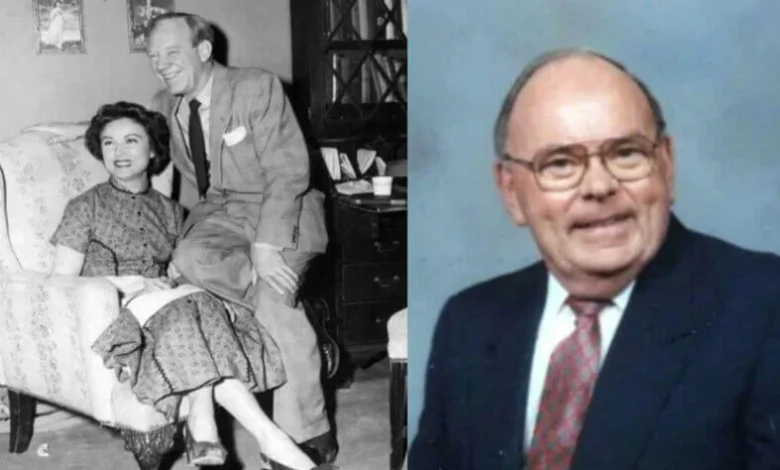Arnold Frederic Hartman: A Visionary of Thought and Innovation

Arnold Frederic Hartman is a name that echoes with profound insight, intellectual depth, and an enduring legacy in thought and innovation. Known for his exceptional contributions to philosophy, literature, and the broader field of human understanding, Hartman carved a place for himself in history with his visionary ideas. His life and works continue to resonate with individuals, providing a guiding light in the quest for knowledge, ethical growth, and personal development.
This article delves into the life, works, and lasting impact of Arnold Frederic Hartman, illuminating how his ideas have influenced modern thought. His commitment to understanding humanity and the world around us remains a source of inspiration.
Early Life and Education
Arnold Frederic Hartman’s formative years were steeped in intellectual curiosity. Born into a family that valued education, he was introduced to classical literature, philosophy, and science at a young age. This exposure shaped his perspective, cultivating in him a lifelong passion for learning and critical thinking. Hartman pursued higher education at prestigious institutions, where he studied philosophy, psychology, and ethics, delving deeply into the human experience.
From an early age, Hartman displayed a natural aptitude for dissecting complex ideas and presenting them with clarity. His teachers recognized his talent, often describing him as a “thinker” with a unique ability to understand intricate concepts and communicate them effectively. It was this foundation that would later allow Hartman to become a guiding voice in philosophy and literature.
Hartman’s Philosophy: A Commitment to Human Potential
Hartman’s philosophical outlook centered around the idea that every individual has an inherent capacity for growth, self-awareness, and ethical understanding. His most renowned works explore the themes of self-realization, moral responsibility, and the interconnectedness of human life. Hartman was a firm believer in the idea that personal development should lead to a greater sense of responsibility toward others and society.
One of Hartman’s key contributions was his approach to “ethical intelligence.” He argued that intelligence is not merely a cognitive function but a moral one, emphasizing that true wisdom involves a commitment to ethical principles. In his book Paths of Conscience, Hartman wrote, “To know oneself is to understand one’s duty to others.” This statement encapsulates his belief that personal enlightenment is not an end in itself but a means to foster compassion and empathy.
Through his writings, Hartman encouraged readers to seek inner balance and contribute positively to society. He maintained that the measure of a person’s intelligence is not only in their ability to reason but in their capacity to act with kindness, honesty, and integrity. This holistic view of intelligence as encompassing both mind and heart has made his work relevant to modern discussions on emotional intelligence and ethical leadership.
Influence on Literature and Modern Thought
Hartman’s works have significantly impacted the literary and philosophical landscapes. His writing style, characterized by clarity and profound depth, has made complex philosophical ideas accessible to a broad audience. Rather than presenting abstract theories, Hartman used relatable examples and narratives, allowing readers to see themselves within his ideas.
His influence extends beyond philosophy and literature; he is often cited in studies related to psychology, sociology, and ethics. Many contemporary thinkers reference Hartman when discussing topics like mindfulness, moral reasoning, and personal accountability. His emphasis on self-awareness as a path to social improvement has inspired movements that emphasize personal growth as a tool for societal change.
One of Hartman’s most notable works, Echoes of Humanity, remains a classic text, offering reflections on the human condition, relationships, and the pursuit of truth. This book has been translated into numerous languages and is still widely read by those interested in understanding human nature and the ethical challenges of modern society.
Arnold Frederic Hartman’s Legacy
Hartman’s legacy is one of intellectual curiosity, empathy, and ethical integrity. His life’s work serves as a testament to the belief that knowledge and virtue are inseparable and that true understanding requires both critical thought and compassion. Hartman’s ideas continue to influence scholars, students, and anyone striving for personal and societal growth.
In a time when society faces unprecedented challenges, from technological advancements to ethical dilemmas, Hartman’s ideas offer a framework for navigating these complexities. He believed that while knowledge is power, it is the wise and compassionate application of knowledge that truly defines progress.
As modern society grapples with issues of equality, justice, and understanding, Hartman’s teachings remind us of the importance of personal responsibility. He encouraged individuals to look inward, develop their sense of purpose, and act in ways that benefit both themselves and the greater community. Hartman’s notion of “conscientious intelligence” is more relevant than ever, advocating for an intelligence that seeks the common good.
Conclusion: The Enduring Relevance of Hartman’s Ideas
Arnold Frederic Hartman’s thoughts on philosophy, ethics, and human potential continue to inspire generations. His works have encouraged countless individuals to embark on their own journeys of self-discovery, striving to make a positive impact on the world around them. In a world that is constantly evolving, Hartman’s emphasis on ethical intelligence and human potential serves as a reminder that progress is not just about advancing knowledge but about applying that knowledge to build a more compassionate and just society.
Today, Hartman’s legacy endures as a beacon of hope and wisdom, inspiring individuals to not only seek knowledge but also to use it responsibly. Through his writings and philosophy, Arnold Frederic Hartman has left an indelible mark on the fabric of human thought, one that will continue to shape minds and hearts for generations to come.





